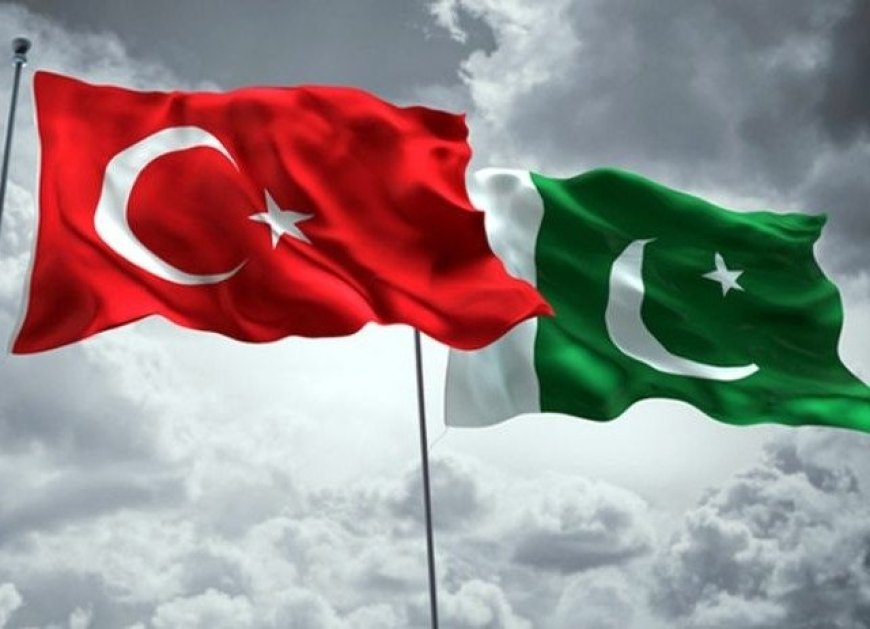Karachi Export Zone: Pakistan Allocates 1,000 Acres for Turkish Investment
Pakistan allocates 1,000 acres free for Turkiye in Karachi Export Zone to boost trade, cut freight costs, and expand industrial cooperation.

Pakistan has announced a landmark initiative to strengthen its economic and trade ties with Turkiye by allocating 1,000 acres of land free of cost for the establishment of a dedicated Export Processing Zone (EPZ) in the Karachi Industrial Park. Officials believe the project could emerge as a turning point in bilateral trade relations and accelerate progress toward the ambitious $5 billion trade target set by both nations.
Pakistan-Turkiye Economic Cooperation Enters a New Phase
The initiative comes at a time when Pakistan is seeking to deepen its economic cooperation with Turkiye across multiple sectors. The creation of a Turkish-exclusive Export Processing Zone in Karachi is expected to provide an investor-friendly ecosystem, facilitate industrial relocation, and reduce production costs for Turkish companies targeting Middle Eastern, Central Asian, and South Asian markets.
High-Level Pakistani Delegation Visits Turkiye
A high-profile delegation from Pakistan — comprising officials from the Foreign Office, Special Investment Facilitation Council (SIFC), Board of Investment (BoI), and Sindh Export Processing Zone Authority — recently concluded a two-day visit to Istanbul and Ankara.
During the visit, the team held discussions with Turkish government representatives, industrial leaders, and business associations. The Pakistani officials highlighted the strategic advantages of Karachi’s location, emphasizing that the new zone would serve as a gateway for exports to nearby markets with significantly reduced costs.
Karachi’s Strategic Edge
Officials presenting the project stressed that Karachi’s geographic positioning makes it one of the most attractive destinations for investment in South Asia.
The Karachi Industrial Park is directly connected to Pakistan’s largest seaport and key highways, ensuring seamless logistics for industries. In addition, its proximity to Gulf states and Central Asia allows exporters to tap into markets that are otherwise expensive for Turkish industries to reach from Europe.
A senior Pakistani official underscored the cost benefits:
“Our message was clear — Karachi Industrial Park offers immense potential. Turkish companies relocating here could cut freight costs from $4,000 to just $1,000 per ton for exports to regional markets.”
This significant reduction in freight expenses is seen as one of the most attractive features of the proposed EPZ.
Current Trade Between Pakistan and Turkiye
Trade between the two nations has been steadily growing.
-
Bilateral trade volume in 2024: $1.4 billion (a 30% increase from 2023)
-
Pakistan’s exports to Turkiye: $352 million (primarily cotton, textiles, and apparel)
-
Turkiye’s exports to Pakistan: $250.8 million (mainly machinery, chemicals, and industrial equipment)
Both countries are now pursuing avenues to expand the existing Preferential Trade Agreement (PTA) into a broader Free Trade Agreement (FTA). Officials believe this will help bridge the trade gap, diversify export products, and boost overall trade volume to $5 billion in the coming years.
Strategic Importance of the Karachi EPZ
The proposed Karachi Export Processing Zone is being described as a catalyst for a new era of Pakistan-Turkiye industrial cooperation.
By relocating select manufacturing units to Karachi, Turkish companies could leverage Pakistan’s lower labor costs, reduced freight charges, and special investment incentives. At the same time, Pakistan would benefit from advanced technology transfer, industrial expertise, and enhanced exports.
The Pakistan-Turkiye partnership has historically been rooted in shared culture, religion, and diplomacy. However, with the establishment of the Karachi Export Processing Zone, the relationship is poised to enter a new dimension — one defined by industrial cooperation, mutual economic benefits, and long-term trade growth.

 Ateeq Ur Rehman
Ateeq Ur Rehman